The Survey Says: Verification Planning
As the saying goes: Those who fail to plan, plan to fail. With that said, I am excited to announce a new module focused on Verification Planning, which has been one of the Verification Academy’s most-requested subjects for new content. The new Verification Planning module is delivered by our subject matter expert, who literally wrote the book on the subject, Peet James.
The goal of verification planning and management is to architect an overall verification approach, and then to document that approach in a family of useful, easily extracted, maintainable verification documents that will strategically guide the overall verification effort so that the most amount of verification is accomplished in the allotted time. The aim of this module is to define terms, logically divide up the verification effort, and lay the foundation for actual verification planning and management on a real project.
I think you will really enjoy and be enlightened by Peet’s treatment of the subject, and hopefully, you can apply many of the techniques that he presents to your own projects.
Speaking of applying Verification Academy techniques—we just conducted a large survey about the academy and found some interesting results that I would like to share with you. First, Figure 1 shows who is viewing the Verification Academy content by job title.
Figure 1: Verification Academy viewers by job title
It’s not too surprising that a majority of the viewers are verification engineers, with a ratio of about 3.5 verification engineers for every 2 designers.
In addition to who is viewing the Verification Academy, we were interested in learning the viewer’s type of targeted design implementation to get a better understanding of our viewers’ needs. Figure 2 shows who is viewing the Verification Academy by their type of targeted design implementation.
Figure 2: Verification Academy viewers by targeted design implementation
We are obviously seeing a growing number of FPGA engineers interested in advanced functional verification. Today’s complex SoC-base FPGA designs are not your mom and pop variety of FPGA designs. More advanced verification skills are required to ultimately meet both quality and schedule goals.
Another question we wanted to answer through our survey is whether the Verification Academy has been useful. One way to answer this is to see how many viewers had actually applied or plan to apply the knowledge they learned in the Verification Academy on their own projects. The survey results are shown in Figure 3.
Figure 3: Verification Academy viewers who have applied knowledge on projects
We also wanted to determine through the survey if the content presented in the Verification Academy was at an appropriate level of detail. The survey results are shown in Figure 4.
Finally, we wanted to determine through the survey which additional topic in advanced functional verification should be covered in the Verification Academy. Figure 5 presents the results.
Figure 5: Verification Academy new subject content request
Your feedback is important to us, and we are very excited that our new Verification Planning module was one of the top requests from the Verification Academy survey participants.
I would like to encourage you to check out all our new and existing content at the Verification Academy by visiting www.verificationacademy.com.
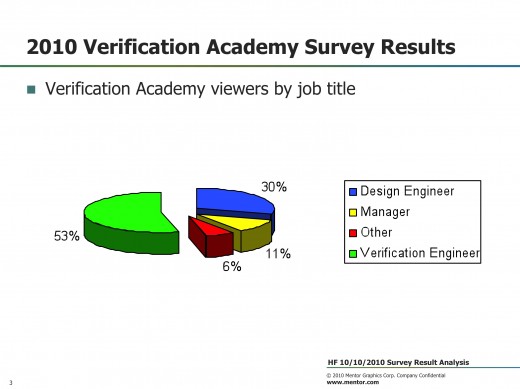
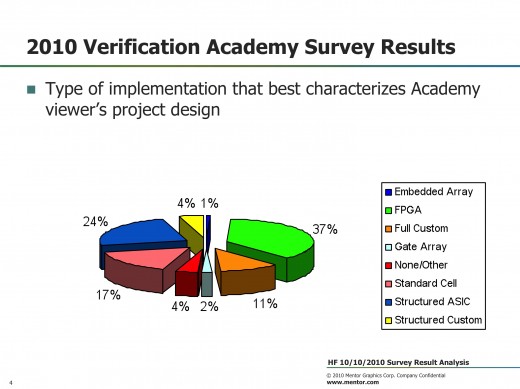
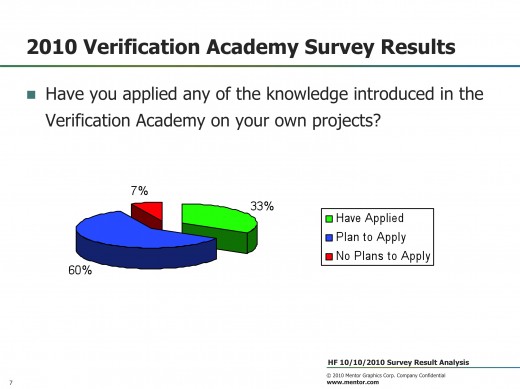
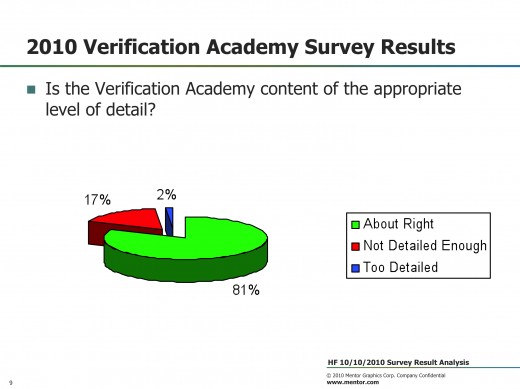
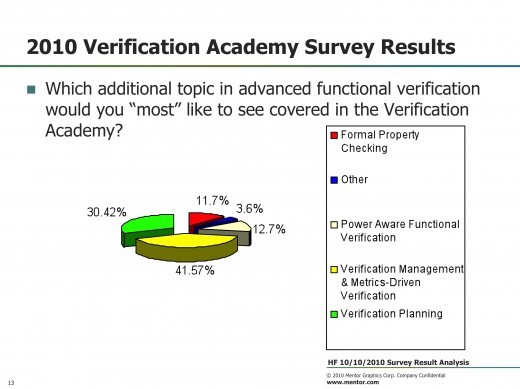



Comments